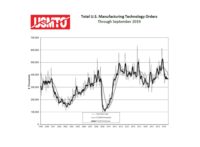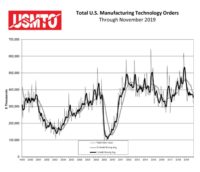INDUSTRY HEADLINE
U.S. Quality Professionals See Modest Increase; Canadians Experience Decrease

MILWAUKEE, WI — After last year’s significant increase, the average salary for quality professionals in 2016 remained nearly flat; the increase is described as “barely visible” in the ASQ Quality Progress magazine’s 30th annual salary survey.
In 2016, average salaries increased a modest 0.86 percent to $91,659 for full-time professionals in the United States. In 2015, average salaries increased 2.78 percent — the largest increase since 2007 — to $90,878.
The story is different in Canada however, where average salaries for quality professionals decreased to $86,923 from $89,291 a year ago. (All Canadian figures are noted in Canadian dollars.) The 2.6 percent decrease is attributed to the smaller number of respondents, according to the salary survey report.
In 2016, the highest-paid quality professionals in the U.S., by job title, include vice president/executive, who make an average of $169,350, statisticians, who average $132,468, and directors, who make $130,902. In Canada, the top salary belongs to Master Black Belts and educators/instructors, who average $177,230.
While salaries in the United States remain flat, the percentage of respondents dissatisfied with their salaries decreased from 35 percent in 2015 to 27 percent this year — the lowest level since QP began monitoring employee satisfaction in 2014. Furthermore, respondents are most satisfied with their pay when their employers pay for quality-related training and ASQ certifications, demonstrating that they value employees who hold ASQ certifications, and have top management who actively support quality.
“While salaries for quality professionals remain mostly unchanged from last year, support from senior leaders and their willingness to pay for quality training and ASQ certifications play a major role in the satisfaction of their employees,” said ASQ Chair Pat La Londe. “It’s that training and those certifications that can help employees add value to the organization and increase its quality.”
Certifications, Education Impact Pay
While the average salary for full-time quality professionals ticked upward only slightly upward, there are steps workers can take to boost their pay, like earning ASQ certifications.
As in years past — and as expected — those who hold ASQ certifications earn more than their non-credentialed colleagues.
According to the salary survey results, U.S. respondents with one ASQ certification earn more than $3,800 than those without any certifications. Those with two certifications earn nearly $6,200 more than those with only one certification.
Specifically, quality engineers who have an ASQ manager of quality/organizational excellence certification, or CMQ/OE, earn nearly 21 percent more than noncertified quality engineers. Specialists armed with an ASQ quality auditor certification, or CQA, earn 17 percent more than noncertified specialists.
Another way to boost pay is by participating in Six Sigma training. The average salary increased to $100,361 from $83,004 for U.S.-based quality professionals who completed one or more Six Sigma training programs. In Canada, average salary increased to $94,234 from $81,759 for those who completed Six Sigma training.
And while any level of training offers a boost in pay, completing higher levels of Six Sigma training offers an opportunity for larger salary increases.
In the U.S., the greatest disparity is between Master Black Belts, who earn an average of $130,878, and Black Belts, who earn an average of $104,974, a difference of nearly $26,000. In Canada, the greatest premium comes with Black Belts, who earn nearly $18,000 more than Green Belts.
About the Salary Survey
The Quality Progress Salary Survey was completed by more than 7,200 quality professionals from a broad range of industries and market sectors, with a response rate of 14 percent. Regular, full-time employees made up 92.5 percent of the respondents. Self-employed consultants, part-time employees and unemployed, retired or laid off workers also were surveyed.
Fore more information, visit qualityprogress.com/salarysurvey.
Looking for a reprint of this article?
From high-res PDFs to custom plaques, order your copy today!







